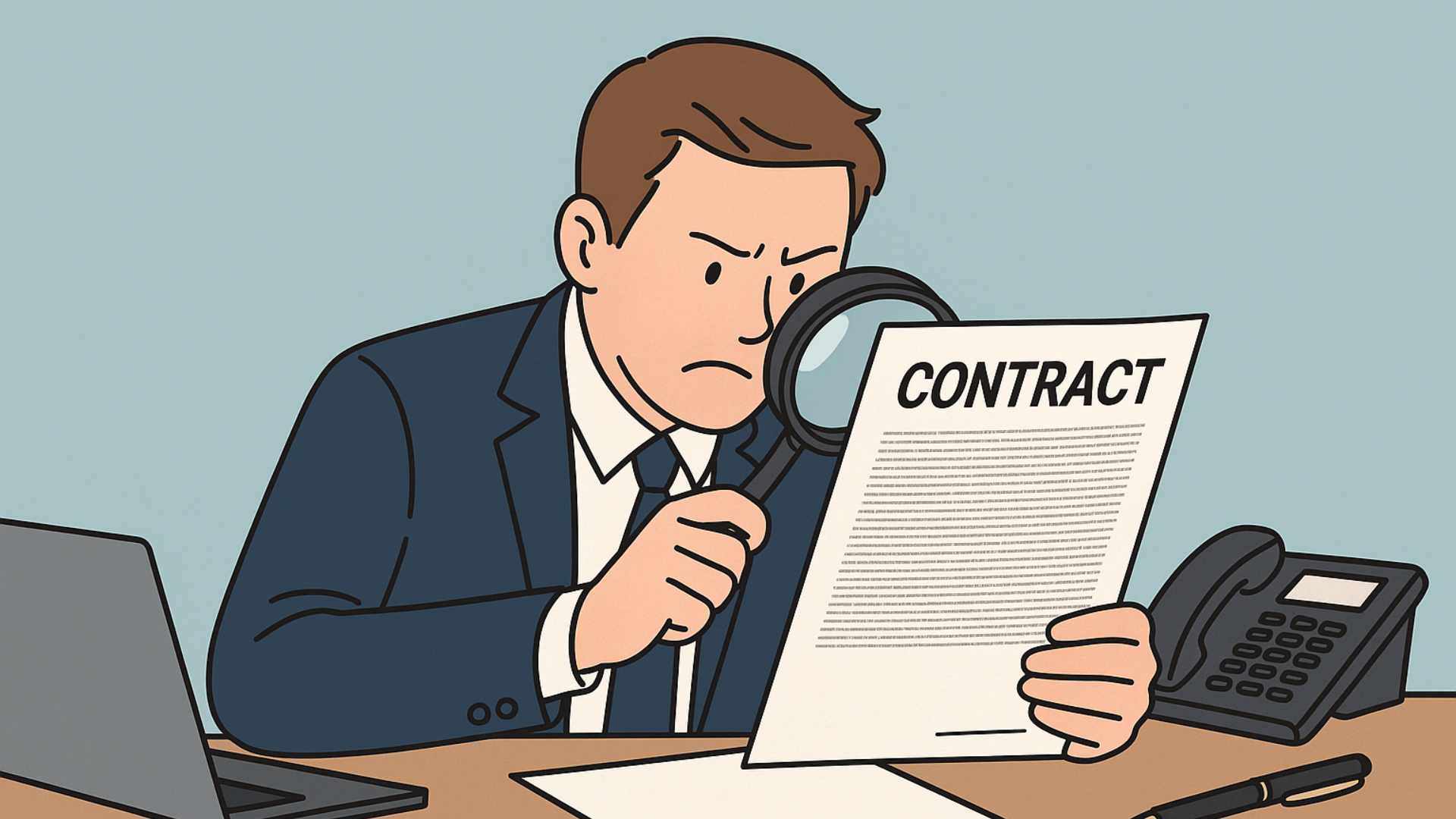Business Phone Renewal Coming Up? Read This Before You Sign Again
September 18th, 2025
3 min read
By Will Maddox

Many businesses sign renewals without realizing the financial and operational impact until it’s too late. You can often avoid getting trapped in another long-term telecom contract if you understand how auto-renewal clauses work and know what to watch out for.
If you’ve ever been caught off guard by a contract renewing automatically, you’re not alone. Providers often tuck these terms into fine print, and businesses only notice when they’re locked in for another one, two, or even three years.
At TeleCloud, we’ve worked with businesses of all sizes to review contracts and help them understand their options. While we provide solutions, our goal here is to give you the knowledge you need to make informed decisions.
In this guide, we’ll cover what auto-renewal clauses are, how they work, their risks, and practical strategies to protect your business from being stuck in an unfavorable agreement.
What Is an Auto-Renewal Clause in Telecom Contracts?
An auto-renewal clause automatically extends your contract unless you cancel it within a specific window. These are common in telecom agreements, SaaS subscriptions, and equipment leases. While not inherently bad, they can create issues when businesses aren’t aware of the terms.
Why Do Providers Use Auto-Renewal Clauses?
Providers use auto-renewals to:
- Ensure continuity of service so your phones don’t stop working.
- Recover upfront costs such as installations, equipment, or discounted pricing.
- Maintain predictable revenue to support long-term planning.
While these make sense from the provider’s perspective, they can put businesses at a disadvantage if not monitored closely.
How Auto-Renewal Clauses Work in Business Phone Contracts
Most business phone contracts are set for 12, 24, or 36 months. Here’s how renewals typically work:
- Length of renewal: The contract may renew for the same term or shift to month-to-month.
- Notice period: You often need to cancel 30–90 days before the renewal date.
- Termination fees: Cancelling after renewal may trigger fees equal to the remaining contract value or repayment of waived costs.
Why Auto-Renewals Can Be a Problem for Businesses
- Unexpected fees and penalties: Early termination fees or repayment of promotions can add up quickly.
- Limited protections: Unlike consumer contracts, business agreements often lack regulatory safeguards.
- Provider tactics: Some providers bury renewal terms deep in the contract, making it easy to miss.
Financial Impacts: Small Business vs. Enterprise
Small Business Example: A 24-month contract at $150/month that auto-renews could cost $2,700 in fees if canceled six months into the renewal.
Enterprise Example: A 24-month contract with Ten locations at $500/month could face over $60,000 in penalties if canceled mid-term.
Auto-renewals may seem like small print, but the financial consequences can be significant.
Regulations and Legal Protections You Should Know
- FTC guidance: The Federal Trade Commission monitors unfair auto-renewal practices, but most protections apply to consumers, not businesses.
- State laws: Some states, like New Jersey, require providers to notify customers before renewal. Business-to-business contracts may not always be covered.
- Your responsibility: Always check local regulations and consult legal guidance where necessary.
Best Practices Before Signing Your Renewal
- Review the renewal and cancellation terms carefully.
- Negotiate for shorter renewal periods or month-to-month options.
- Ask for written reminders before renewal dates.
- Compare other providers to see if the renewal terms are competitive.
What to Do If You’re Already Locked Into a Contract
- Revisit your agreement for early termination details.
- Look for outdated terms that may weaken your provider’s position.
- Seek advice from telecom consultants or legal experts.
- Negotiate based on your provider’s desire to retain your business.
How to Negotiate Better Terms With Your Provider
- Highlight outdated terms: Contracts written years ago may no longer reflect market standards.
- Show market comparisons: Demonstrate how competitors offer better features or pricing.
- Frame as a long-term relationship: Providers are often more willing to negotiate if they know you may return in the future.
When to Consider Switching Providers
Switching may be the right move if:
- Your provider lacks modern features such as mobile apps or call analytics.
- You experience frequent service issues or rising costs.
- Your contract doesn’t support flexibility for remote or hybrid work models.
Key Takeaways and Checklist
Before you sign:
- How long is the renewal period?
- What’s the cancellation notice deadline?
- Are there termination fees if you cancel mid-term?
- Have you compared renewal terms against current market options?
Being proactive now saves you from frustration and unexpected costs later.
Don’t Sign Blindly: Rethink Your Contract Renewal
Auto-renewal clauses can cost businesses thousands if not managed carefully. They aren’t always bad, but they require close attention and proactive planning. Before you sign again, take time to review your contract, mark renewal dates, and explore alternatives so you aren’t locked into terms that don’t fit your needs.
At TeleCloud, we help businesses navigate renewals and uncover savings with a free Telecom Bill Audit. By taking a proactive approach, you can ensure your communications agreements support your growth instead of holding it back.
Ready to take control of your telecom contract? Schedule your free Telecom Bill Audit today and gain the clarity you need before signing your next agreement.
FAQ
Can I cancel an auto-renewed contract without penalty?
It depends on the terms. Most contracts impose fees, but outdated agreements may give you leverage to negotiate.
How much notice do I need to give to avoid auto-renewal?
Most providers require 30–90 days written notice. Always check your contract for the exact timeframe.
Are telecom contracts regulated like consumer contracts?
Not usually. Business agreements generally have fewer protections, which makes reviewing terms even more important.
Can I negotiate with my provider mid-term?
Yes. If your contract is outdated or your provider values the relationship, you may be able to renegotiate fees or terms.
What’s the best way to track renewal dates?
Set calendar reminders and assign responsibility to a team member to review contracts at least six months before expiration.
Topics:







